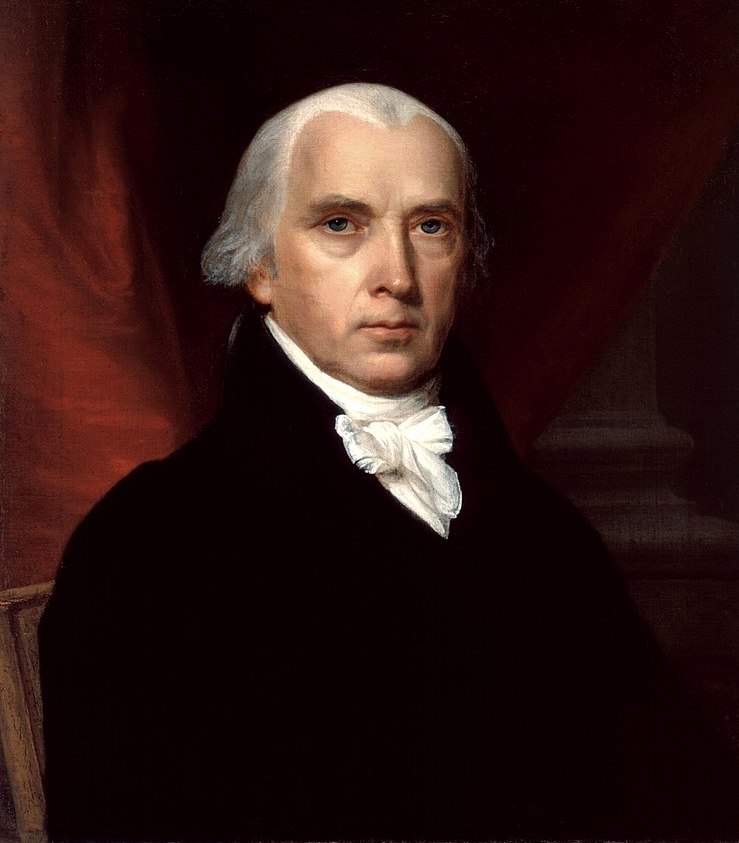
Image Credit: John Vanderlyn, Public domain, via Wikimedia Commons
By Saul Roth
In November of 1775 the rebellion was heating up. The Governor of Virginia invited all indentured Servants and Negroes that were able and willing to bear arms to join the British army. (Kozuskanich, 2008). No one would believe either now or then that the British Army was allowing blacks to carry guns when the governor asked them to bear arms. A British Colonel named Isaac Hayne was born in the colonies. When he was arrested, he stated. “I will never bear arms against my country” (Kozuskanich, 2008)
Opponents of the 2nd Amendment that speak of bearing arms for the militia have their own theories of the wording. These opponents also look back to the statements of our founders and others of that time. Thomas Jefferson and James Madison drafted a bill that prohibited taking deer at certain times. The bill read, “If within twelve months after the date of the recognizance, and be good cause to bind him a new, and every such bearing, of a gun shall be a breach of the new recognizance and cause to bind him again”. This statement does show that bearing a gun was for hunting. The bearing of the gun that was related to on and off was the gun bearer’s property. (Barnett,2004). This statement does support the cause of the opponents.. Other statements they use, I believe, do not support the opponents’ cause. One states that “if Congress were to pass a law prohibiting any person from bearing arms, as a means of preventing insurrections the judicial courts, under the construction of the words necessary and proper, here contended, it would be able to pronounce decidedly upon the constitutionality of these means” (Barnett, 2004, p. 246). Here the author is explaining that bearing arms could be a way to stop the government from controlling him. Yet one of the reasons for the militia at that time was that a state militia was needed to hold off too powerful a federal government. The people then did not believe in or want a strong national government. They believed and supported a state militia instead of a national army. So bearing arms to hold off insurrection would have had a military meaning then, namely using the bearing of arms to produce a state militia.Another opponent statement often used is from the minority report of the Pennsylvania ratification convention when it amended the Constitution. This statement reads
“ That the people have a right to bear arms for the defense of themselves and their own state, or the United States, or for the purpose of killing game, and no law shall be passed for disarming the people or any of them, unless for crimes committed, or real danger of public injury from individuals, and as standing armies in the time of peace are dangerous to liberty, they ought not be kept up, and that military shall be kept under strict subordination and governed by civil power” (Barnett, 2004,p.246).
This is another strong point. First, it’s important to note this is the “minority “report of the Pennsylvania delegation. Of course every one presented ideas during the debate on the amendments. If the statements were not incorporated into the amendment, it is more proof that this was not the intended meaning. Many of the state’s reports on the Second Amendment included the phrase, “keep and bear arms”. Why would the word “keep” be used if “bearing” were the same as “keeping”? In the final analysis “keep” was included as language in the Second Amendment. This statement also shows the people’s fear of a standing army and was the reason for them to bear arms and serve when needed. perhaps because of past experience with the British Army and the power of the King.
Since the inception and ratification of the Second Amendment to the Constitution, it has been interpreted many times. Most of these cases were in state courts. During three distinct periods in the history of the US, the courts seemed to lean in different directions. Also different parts of the country had state courts with different interpretations of the Second Amendment.
During the Antebellum era from 1791 to 1868, state courts made decisions that in favor of the presumptive right to carry arms for self-defense of one’s self. The Kentucky Court of Appeals in Bliss v. the Commonwealth issued one of the strongest decisions for the personal carry of weapons. The state’s highest court at the time struck down a state law against carrying concealed weapons. The Court’s opinion stated the law violated the rights of citizens to bear arms for their own defense. However, Alabama in the State v. Reid in 1840 held that the state could prohibit a person from possessing concealed weapons. Still, in their opinion the Court wrote that it is the right of every citizen to bear arms for the defense of his or her own person and the state. The courts just believed the state had a right to regulate the manner for how a citizen carried that weapon.

Recent Comments